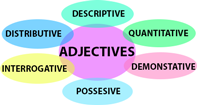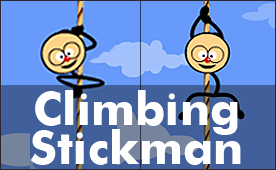Change Avatar
Comparative Adjectives
Comparative Adjectives
Comparative adjectives compare two things to one another.
Example:
She is happier than he is.
The sow is muddier than her piglets.
The sky is cloudier than it was before.
There are three degrees of adjectives: positive, comparative, and superlative.
Positive degree tells about the quality of a noun or pronoun.
Comparative compares two things to show which is lesser or greater in quality.
Superlative compares more than two things to show which is the least or greatest in quality.

How do you form comparative adjectives?
Forming comparative adjectives depends on the type of adjective. Use the following chart to help you in formation.
| Type | Example in positive degree | How to form | Example in comparative | |
|---|---|---|---|---|
| One syllable | warm | add -ER | warmER |  |
| One syllable ending in vowel+consonant | big | Double consonant & add -ER | bigGER |  |
| More than one syllable | important | Add less or more | less important more important |  |
| More than one syllable ending in y | angry | remove y add ier for less | angrIER less angry |  |
| Irregular | - good - bad - many No rules! | No rules! | - best - worst - more |
What to Watch Out for with Comparative Adjectives:
#1 - Don’t double them! This mistake is called a “double comparative” and is grammatically incorrect.
Example:
Your turtle is the most slowest.
Her hair is more frizzier than mine.
#2 - Don’t use the superlative when comparing only two things. Always use the comparative!
Example:
Incorrect - Of the two ballers, he is the most powerful.
Correct - Of the two ballers, he is the more powerful.
#3 - Adjectives without comparative forms - their meaning already expresses the strongest quality of each.
Examples:
“Dead” is always just “dead.” There is no “deader,” “deadest,” or “more dead.”
Other words that apply: single, unique, & instantaneous.










